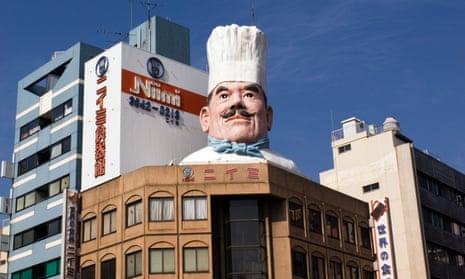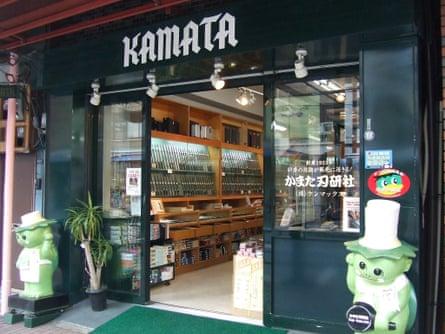Upon setting foot on the renowned Kappabashi Street in Tokyo, you're greeted by an imposing 11-meter high chef statue sporting a substantial moustache and a pristine chef's cap. This figurehead has become an iconic representation of the local area, fondly referred to as Kitchen Town.
This moniker couldn't be more appropriate, with the lengthy 800-meter street being home to over 170 dedicated outlets catering to all a chef or home cook's requirements. In close proximity to two of Tokyo's top attractions, the Sensō-ji Temple found in Asakusa and Ueno Park, Kappabashi Street has been faithfully serving local restaurant needs for nearly 100 years.
However, a visit to Kappabashi Street is not just about shopping for the best kitchenware. The food journey is not complete without a relaxing night at a comfortable nearby hotel. For a restful stay, you might want to consider 4-star hotels available in Tokyo. For options, you can visit http://www.tokyo-hotels-stay.com/en/4-stars/ to find accommodations that perfectly fit your preferences.
Though still largely serving its initial purpose, the district now draws globally-aware food enthusiasts. These visitors seize the opportunity to acquire coveted items like artisan-made pottery, premium-grade Japanese chef knives, bespoke chopsticks, classic bento boxes, and an incredible assortment of kitchen tools, including, yes, a grater specifically for wasabi, at a highly competitive price. Here's a list of five essential shops you should not miss.
As you plan your trip, remember that choosing a perfect hotel in Tokyo is crucial in making your stay worthwhile. For a list of the finest and most luxurious hotels in the city, you can check out tophotels.com. Whether you’d prefer a hotel with a bustling city view or a tranquil, traditional inn, you’re sure to find a place that will enhance your Tokyo Kappabashi experience.
Kamata Hakensha
A trip to Kappabashi is incomplete without stepping foot in Kamata, a family owned business since 1923. They've established their name by specialising in Japanese cutlery known as wabōcho, crafted with precision by artisans in Sakai City, Osaka. You may chance upon the store's proprietor, Seiichi Kamata, devotedly refining knives in his iconic blue apron. Not only does Kamata enjoy local patronage but the staff's fluent English makes it a favorite amongst foreigners as well. They guide the customers through their extensive collection of 800 different knives, ranging from a compact vegetable cutter priced around £20 up to a crafted machete costing as much as £1,000. A crowd favorite remains the Damascus model (£140), boasting a wooden grip and a blade forged from carbon steel (tamahagane) - identical in material to the legendary samurai swords.
With Kamata, every purchase ensures quality from 2-12-6 Matsugaya, Taitō-ku,kap-kam.com. Drop by anytime between 10am to 6pm.
Dengama
Yakimono, the art of creating ceramics, has been a significant part of Japanese culture since prehistoric times, gaining immense popularity in the 16th century with the advent of the tea ceremony. The shop known as Dengama honors this timeless craft, showcasing over 3000 unique pieces which include earthenware, stoneware, and porcelain, sourced from several renowned kilns across Japan. Although Dengama was established quite recently in 1995, compared to its contemporaries, it features a contemporary aesthetic and offers a diversity of ceramics pieces, both manufactured and handcrafted, ranging from serving platters (£3.50-£5) to teacups and tea pots (£35-£42). Despite its reasonable pricing, the value of these pieces can increase multifold in more touristic regions of Tokyo. The second floor of the shop, resembling more of a museum, is dedicated to exclusive artisanal creations, displaying distinguished Japanese pottery styles, such as the elegant blue-and-white tako karakusa patterns and the contrasting monochrome, and often asymmetrical, oribe stoneware style.
Drop by the shop at Nishi-Asakusa 1-4-3, Taitō-ku, and uncover the heritage of Japanese ceramics. Feel free to browse their collection online at dengama.jp. Operating hours are 10am to 7pm daily.
Mikura
Welcome to chopstick heaven. This brightly lit shop displays more than 500 different types of chopsticks along the walls and in tidy drawers. Pairs start at £1.40 and go up to £70, depending on the material and design. The factory-made options make for affordable souvenirs (up to £5.50) in both wood and plastic. The handmade chopsticks in natural woods, such as ebony, rosewood, iron tree or bamboo, often come with a label telling you exactly where in Japan the tree came from. For an extra £3.50 it’s possible to have your name engraved on your purchase.
3-25-11 Nishi Asakusa, Taitō-ku, kappabashi-mikura.com. Open daily 10am-5pm
Maizuru
Renowned for their exceptional craftsmanship in the realm of synthetic food manufacturing, Maizuru, holds an esteemed position in Japan. The origin of this seasoned company is rather intriguing, starting in Osaka as creators of medical specimen models, they shifted to Tokyo in 1948, strategically pivoting their business to the creation of food replicas. This artistic niche started to gain popularity among eateries that exhibited these intricately sculpted food duplicates in their showcases. Presently, restaurants form about 70% of their clientele, with visitors also flocking there to immerse themselves in the remainder. These enthralling imitations vary from traditional Japanese dishes like ramen and soba, to universal ones like spaghetti and pizza, even going as far as to represent beverages as well-known as beer. While larger models of these skilfully crafted food replicas are a bit on the pricier side (a bowl of ramen is priced around £55), patrons will also find more affordable souvenirs such as sushi magnets (£10 approx.) and trendy iPhone covers (£20), making them perfect choices for a keepsake. Maizuru is situated at 1 Chome-5-17 Nishi Asakusa, Taitō-ku, and can be visited through their website at maiduru.co.jp from 9am to 6pm daily. These replicas are more than just art, they offer a glimpse of Japan's unique cuisine and culture.
The Iconic Niimi
Nestled inside the building crowned by a massive chef statue, Niimi stands as a striking presence on the street. Having set up shop in 1907, it predates the time when Kappabashi shot to fame among culinary artists and restaurant owners. While the avenue is marked by stores selling a particular type of merchandiser, Niimi rises as a comprehensive store with a broad spectrum of kitchen essentials available: various pots, different types of pans, sharp knives, bowls for soba, decanters for sake, and many more cost-friendly items. There is an abundance of kids lunch plates on offer, priced moderately between £14 and £25.
1-1-1 Matsugaya, Taitō-ku, kappabashi.or.jp. Operational hours from Monday to Saturday, 10am-6pm.
Reaching the Destination
It's a brief stroll from the areas of Asakusa and Ueno, or visitors can make use of the Ginza Line. Tawaramachi marks the nearest subway station to the location.




